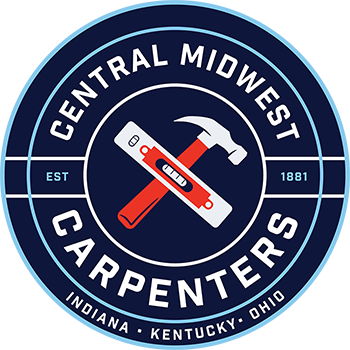NEWS
HOT ITEM


Recent News
 2024 Indiana Kentucky Graduate Speaker – Kyle HarveyMarch 28, 2025 - 1:49 pm
2024 Indiana Kentucky Graduate Speaker – Kyle HarveyMarch 28, 2025 - 1:49 pm Military Outreach Makes Big ImpactMarch 24, 2025 - 3:29 pm
Military Outreach Makes Big ImpactMarch 24, 2025 - 3:29 pm 2025 Central Midwest Sisterhood UpdateMarch 3, 2025 - 5:13 pm
2025 Central Midwest Sisterhood UpdateMarch 3, 2025 - 5:13 pm Craft Spotlight – Justin RogersFebruary 26, 2025 - 4:44 pm
Craft Spotlight – Justin RogersFebruary 26, 2025 - 4:44 pm Ohio’s Newest Journey-Level Carpenters: Class of 2025February 25, 2025 - 12:55 pm
Ohio’s Newest Journey-Level Carpenters: Class of 2025February 25, 2025 - 12:55 pm Craft Spotlight – Brandon HuffmanFebruary 19, 2025 - 3:26 pm
Craft Spotlight – Brandon HuffmanFebruary 19, 2025 - 3:26 pm Craft Spotlight – Ron HeimelFebruary 5, 2025 - 5:14 pm
Craft Spotlight – Ron HeimelFebruary 5, 2025 - 5:14 pm


Get Out To Vote
/0 Comments/in News /by IKORCCUnion members who don’t vote elect anti-union officials. Thanks to our many members who continue to show the importance of voting in the upcoming election!
Letter: Apprenticeship programs benefit state
/0 Comments/in News /by IKORCCPosted Sep. 4, 2016 at 8:02 PM
A study released Aug. 24 by the Illinois Economic Policy Institute and the University of Illinois at Urbana-Champaign School of Labor and Employment Relations determined in dollars and cents the actual benefit of apprenticeship programs in Illinois.
These benefits don’t extend solely to those who participate in the apprentice programs but also to the federal, state and local governments that receive the tax revenues and the members of the communities that benefit from increased investment.
According to the study, apprenticeship programs in Illinois “directly provide 2,871 jobs” and “provide $1.25 billion in long-term economic benefits to the state.”
Not only this, but apprenticeship programs educate and prepare the well-trained individuals who provide quality craftsmanship, who take pride in their work and complete it in a time-efficient and cost-effective manner.
The Chicago Regional Council of Carpenters knows that these benefits are important not only to the bottom line, but to the outcome of a project. That’s why the CRCC provides a robust training and apprenticeship program that boasts tens of thousands of highly trained and skilled workers who receive wages and benefits that allow them to support their families and grow their communities.
The study also found that the construction industry is going to keep growing, adding more than 25,000 new jobs in the next decade. Let’s make sure those jobs go to the trained women and men who are not only dedicated to their field, but produce a positive economic impact on our state.
Frank T. Libby
The writer is president/executive secretary-treasurer of Chicago Regional Council of Carpenters
Indiana Interim Study Committee Reviews Payroll Fraud Issue
/0 Comments/in News /by IKORCCYesterday the Indiana Interim Study Committee on Employment and Labor heard testimony from construction contractors on the issue of#payrollfraud. Contractors asked the Indiana Legislature to consider options to investigate and prosecute businesses who break the law and steal from taxpayers. Stay tuned for actions the legislature takes to stop cheating businesses from robbing taxpayers of $400 million/year and raising costs on law-abiding business.
2015 Omnibus Bill Includes Delay on ‘Cadillac Tax’ So Families with Healthcare in US are Protected for Now
/0 Comments/in News /by IKORCCMembers of the United Brotherhood of Carpenters (UBC) and participants in other employer sponsored health care plans in the U.S. can rest a little easier now that implementation of the “Cadillac tax” on those benefits has been delayed until 2020. This provision was included in the $1.1 trillion omnibus spending bill that was signed into law by President Obama. The House of Representatives passed the bill on a 316-113 vote, while the U.S. Senate passed it 65-33.
It is hoped that this delay in implementing the Cadillac tax, which would impose a 40% excise tax on the portion of group health plan premiums that exceed $10,200 for single coverage and $27,500 for family coverage, will lead to a full repeal down the road.
“When people take a closer look at the so-called Cadillac tax, they see how unfair it is for employers and employees,” said UBC General President Douglas J. McCarron. “We have been working hard with law makers and this two-year delay helps us on our way to a full repeal.”
Read this article here.
EXCLUSIVE: Attorney General’s office recovers nearly $5.7M in owed pay for New York low-wage workers
/0 Comments/in News /by IKORCCALBANY — State Attorney General Eric Schneiderman’s office recovered nearly $5.7 million in owed pay and damages for more than 3,300 low-wage workers since last Labor Day, the Daily News has learned.
The recoveries are included in a third annual Labor Day report Schneiderman’s office is set to release Monday.
The recovered wages by Schneiderman’s Labor Bureau went to fast-food employees, home health aides, taxi drivers, restaurant employees and construction workers.
“As Attorney General, I remain steadfastly committed to ensuring that workers are paid for the work they do, that their pay lifts them out of poverty, and that undue obstacles aren’t placed in their path to job security and economic advancement,” Schneiderman said.
Read the full article here.